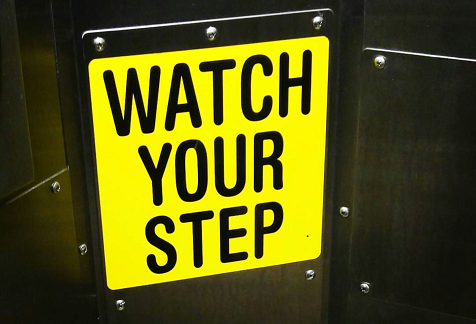“I’m an aspiring copywriter; How do I land my first client?”
This is a question I’m asked on a pretty regular basis. I’ve typed out responses more times than I can count, and I’ve even addressed this topic in a previous post. But since I’ve been approached 4 or 5 times over the past month or so, maybe it’s time to revisit.
Below you’ll find the slightly modified/depersonalized body of an email I sent to a new copywriter a few days ago. Forgive me if you’ve heard this before…unless you’ve heard it but haven’t done anything about it.
And remember, this is my personal experience-based advice. I’m not saying this is the one and only way to become a copywriting pro.
—
When I started learning to write copy, I was an assistant manager at Kmart, working 50-80 hours a week and studying copywriting on my lunch breaks and after work…then harassing people who I thought might hire me, until some of them started to.
Step 1, I think, is deciding to make a real go at this. Regardless of what you read anywhere, copywriting is about helping people SEE:
- See the reality about their current condition
- See the hidden truth about whatever you’re talking about
- See what the future holds, both the good and the terrifying
- See what they have to do now. It’s a skill that has to be developed, but one you’re probably already familiar with as a professional.
Building your business will probably take some time (it does for pretty much all of us), which is why you have to be resolved to put forth the effort.
You’ll probably have to “feel your way around” the copywriting world before you make too many big choices as to niches, mediums, etc.
As a freelancer, you’re going to want to exploit every form of leverage you can get. That includes your formal or informal experience in an industry, contacts you have and stages where you are already recognized. For example, you may be able to leverage your current job expertise and connections to get your foot in the door somewhere. That may be a great way to start finding your rhythm, figuring out how you like to work with clients, and building a portfolio. Oh, and earning some money. Not to say you want to get pigeonholed there, but it’s a start. Or, maybe you’ll love it and find all the business you can handle.
Step 2, Put a website together immediately.
This step took me FOREVER. I didn’t know what to say, and I didn’t feel like I had anything impressive enough to say publicly. Then, once I finally got started, I spent over a year using a free WordPress blog. (HA! It’s still there, 6 years after I abandoned it. https://donniebryant.wordpress.com/)
Believe me, come up with something and just get it up. Something simple will do the trick. The site will take shape and grow as you do. The longer you wait, the more you’ll kick yourself later.
Let Google start getting familiar with you. Start sharing your stories, your perspectives. Share what you’re learning. That will help you develop your skills AND your confidence as a copywriter.
Plus, you need to have someplace to send potential clients to when they’re researching you or after you reach out to them.
Step 2b, While you’re at it, make sure you have a decent LinkedIn profile, too. I don’t love my profile, but you can borrow inspiration from me if you like –> https://www.linkedin.com/in/donniebryantjr. Or, just search “direct response copywriters” and analyze the profiles that rank high.
You’d be surprised how many people are looking for copywriters through LinkedIn. I earned in over $60K in 2015 from a single client who found me on LinkedIn.
Step 3, Start searching for prospects. As I mentioned, you’ll do well to at least try reaching out to people you already know who need to promote themselves, their products or services.
I started out searching the Writing Gigs section on Craigslist. It can be grunt work, but it’ll get you moving. You’ll have to filter out a lot of crap, but may be some good opportunities there. I found a couple great clients there, and I still use one of the sales letters I wrote for a Craigslist client in 2009 as a sample sometimes. I graduated to bugging sellers on Clickbank.
You can also search writing/copywriting job boards (there are quite a few).
Step 4, Connect with other professionals. This has been huge for me, too. Purposefully engage with people who may someday become 1) clients, 2) referral sources, 3) joint venture partners and/or 4) hosts of “shows” you’d like be on. Always be generous and genuine, and the seeds will reap a bountiful harvest over time.
Not every connection will “pay off.” A lot of them will never become relationships. But some of them will. Some could be goldmines in terms of remuneration or camaraderie. Again, one colleague I connected with years ago (via semi-cold email) has gotten me in the front door of 2 dream clients and several others who were pretty darn good (and one who became like a brother to me). That one connection will end up being worth multiple six-figures to me when it’s all said and done.
Step 4b, Start looking for ways to appear in places of authority as a guest blog writer, podcast guest, expert source, etc.
Step 5, Do your research. You learn as much from watching other pros as you do from just about anything else. They’ll also give you raw materials to create your own content from.
Step 6, Ask for what you want. If you need advice, if you’re looking for introductions, if you want to write for someone else’s website/blog/newsletter, be courageous and ASK.
—
I hope that this is helpful.



